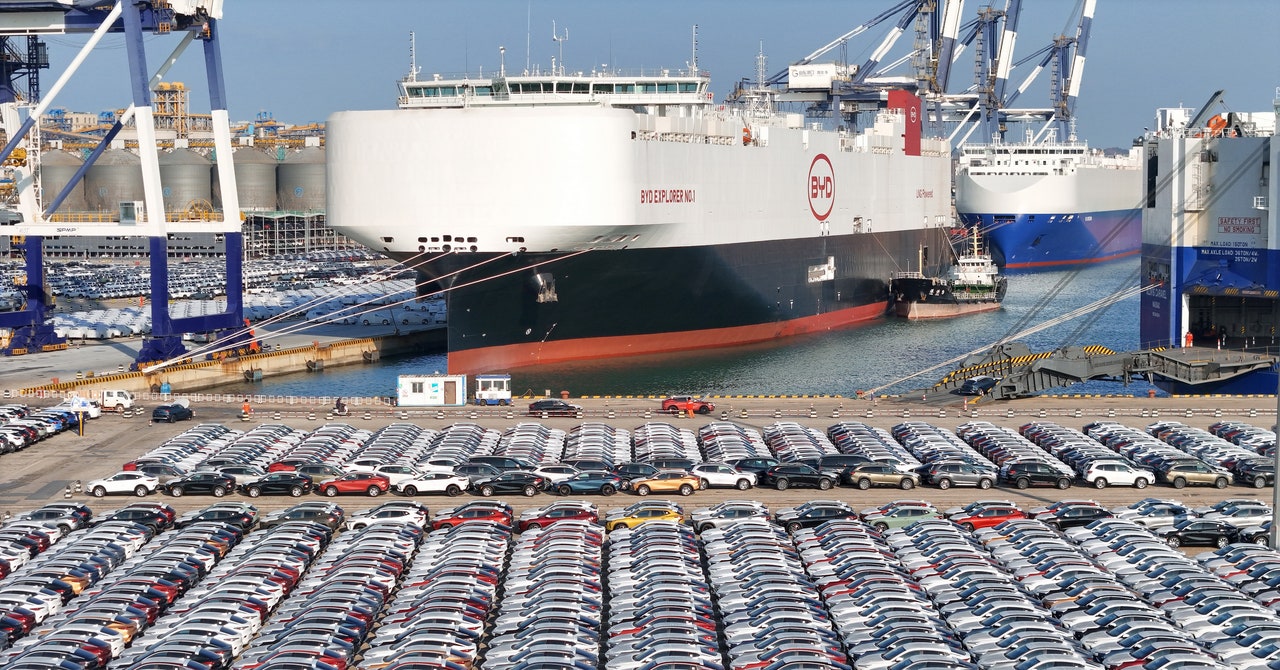- cross-posted to:
- economy
- world
- [email protected]
- cross-posted to:
- economy
- world
- [email protected]
China has positioned itself as the main car supplier in Mexico, with exports reaching $4.6 billion in 2023, according to data from Mexico’s Secretariat of Economy.
The Chinese automaker BYD surpassed Honda and Nissan to position itself as the seventh largest automaker in the world by number of units sold during the April to June quarter. This growth was driven by increased demand for its affordable electric vehicles, according to data from automakers and research firm MarkLines.
The company’s new vehicle sales rose 40 percent year over year to 980,000 units in the quarter—the same quarter wherein most major automakers, including Toyota and Volkswagen, experienced a decline in sales. Much of BYD’s growth is attributed to its overseas sales, which nearly tripled in the past year to 105,000 units. Now BYD is considering locating its new auto plant in three Mexican states: Durango, Jalisco, and Nuevo Leon.
Foreign investment would be an economic boost for Mexico. The company has claimed that a plant there would create about 10,000 jobs. A Tesla competitor, BYD markets its Dolphin Mini model in Mexico for about 398,800 pesos—about $21,300 dollars—a little more than half the price of the cheapest Tesla model.
…
That tariff-free access is part of the US-Mexico-Canada Agreement (T-MEC), an updated version of the North American Free Trade Agreement that, as of 2018, eliminated tariffs on many products traded between the North American countries. Under the treaty, if a foreign automotive company that manufactures vehicles in Canada or Mexico can demonstrate that the materials used are locally sourced, its products can be exported to the United States virtually duty-free.
MAGA strikes again



You couldn’t even refute those idiotic points properly.
True. And irrelevant.
And because the Chinese government is heavily subsidizing their auto industry in order to gain market share works wide. Pros for us: if we can buy these cars, the Chinese government is essentially subsidizing them for our consumers. Cons for us: without equivalent subsidies domestic car companies can’t possibly compete. There are genuine issues of trade fairness in play here.
Relevant only if the Chinese middle class is who is working in those car factories. Is that the case?
I’m not even saying the tarrifs are good or bad. If they’re explicitly time boxed and our governments are able to stick to that deal, then they could be good. But in general tarrifs on EVs during a climate crisis driven by carbon emissions is explicitly counterproductive.
“Show me one thing China has invented”
“Here’s three”
“DOESN’T COUNT!”
Okay, bro.
Some people are able to understand context.